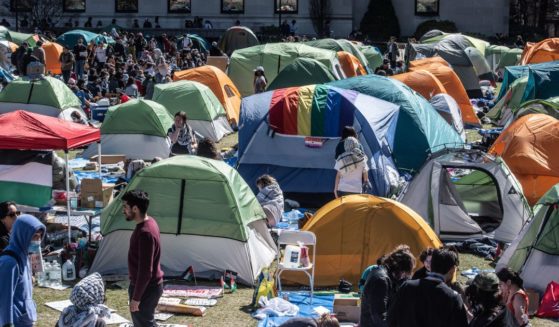Researchers Claim Systemic Racism Is Now Impacting Wildlife
Systemic racism is hurting the squirrels, according to a new study.
The study, by ecologists Chloe Schmidt and Colin Garroway of the University of Manitoba, was published last year by the Proceedings of the National Academy of Science.
Calling her work, “stunning,” Schmidt, in an interview with Wildlife.org, said the study “really highlights how much segregation has shaped city environments.”
Schmidt said the problem began with intentional discrimination in housing.
“Redlining, a policy that started in the 1930s, systematically denied racial and ethnic minorities the chance to purchase homes in U.S. neighborhoods ranked as high quality,” she said.
She said the study determined that the “whiteness of a neighborhood would be a good index of segregation in general.”
The study claimed that non-white neighborhoods — unlike white majority ones — are near highways, railroads or other impediments to animal-friendly environments.
“Systemic racism alters the demography of urban wildlife populations in ways that generally limit population sizes and negatively affect their chances of persistence,” the study said.
“Residential segregation creates race-based disparities in natural resource availability, land use, pollution, and habitat connectivity, such that neighborhoods that historically excluded minorities tend to be better wildlife habitat,” the study said.
The study said that suburbs and other neighborhoods populated by whites had more genetic diversity in animals than inner city areas. Greater diversity in species, the study said, as well as the size of the species represented, were good measures of the viability of animal populations.
In short, squirrels and other animals found it harder to survive in a non-white neighborhood than in a white-majority one, according to the study.
The study said that “limited capacity to support large, well-connected wildlife populations reduces access to nature and builds on existing environmental inequities shouldered by predominantly non-white neighborhoods.”
The study pinned the blame on “systemic racism and the development of urban landscapes.”
“By actively choosing to develop certain areas, forcing minorities to live in undesirable areas, preferentially investing in greening majority white neighborhoods, or placing industrial facilities near communities of color, systemic racism contributes to the structure of the urban landscape, which in turn shapes wildlife demography in cities,” the study said.
In her interview with Wildlife.org, Schmidt said limiting factors hurting wildlife in non-white neighborhoods include “having less parks, or parks that are disconnected, not having as many trees on the streets, or not having as many old trees in the streets that have dense canopy cover where animals can move around.”
She said that “patterns of human segregation were creating these differences in environments that aren’t good for wildlife or people.”
“The structure of cities, partly developed from racist housing practices, creates environments that are not conducive to wildlife persistence in the long-term,” Schmidt said, according to the University of Manitoba’s website.
Truth and Accuracy
We are committed to truth and accuracy in all of our journalism. Read our editorial standards.












